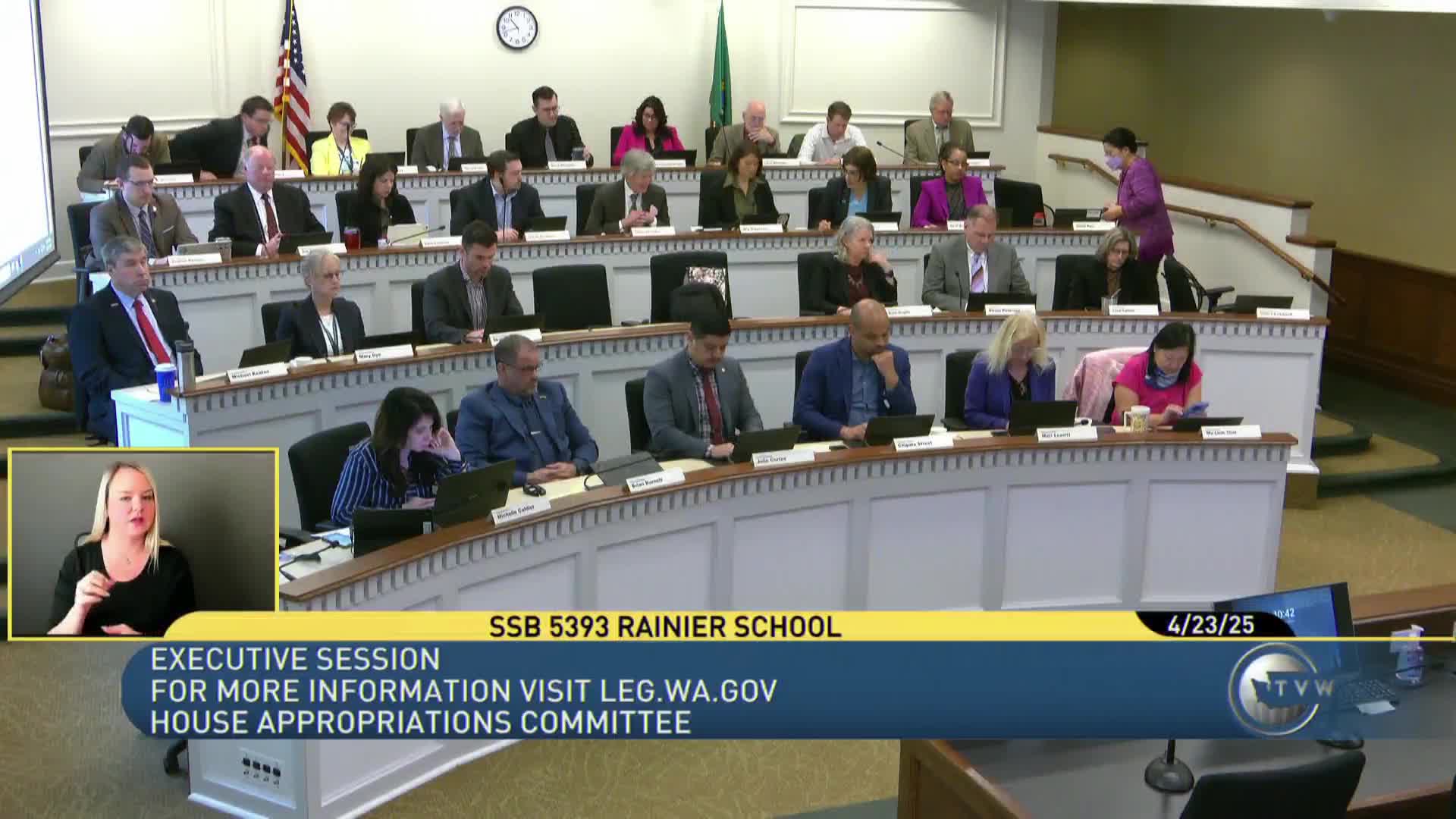Appropriations committee advances bill to close Rainier School amid heated debate over transitions and costs
Get AI-powered insights, summaries, and transcripts
Subscribe
Summary
The Washington State House Appropriations Committee voted 17-14 to report substitute Senate Bill 5393 — which includes provisions to close and transition residents from Regional Habilitation Centers (RHCs) including Rainier School — after hours of emotional testimony about resident safety, staff displacement and fiscal uncertainty.
The Washington State House Appropriations Committee on 2025-10-12 voted 17-14 to report substitute Senate Bill 5393 out of committee with a do-pass recommendation, advancing legislation that would authorize transitions of residents from Regional Habilitation Centers (RHCs), including Rainier School.
Supporters said the bill is part of a larger plan requested by the executive branch to move some residents into community settings and to modernize the state’s service delivery. “We really believe that RHCs are a necessary component on the continuum of care… and this is not trying to villainize them,” the committee chair said on the floor as debate opened. The committee also noted there are appropriations in the budget intended to support transitions.
Opponents and multiple family members, caregivers and lawmakers urged the committee to pause. Representative Penner invoked the state constitution and warned that moving residents without guaranteed placements would conflict with legal duties, saying the bill “strips out the underlying law that requires a plan.” Representative Connors, speaking from the committee’s finance role, said: “It is our job to appropriate the money… and I'm voting no on this bill today. We have nowhere there for them to go.”
Lawmakers pressed on several practical and fiscal issues during debate. Representative Penner and others pointed to an incomplete fiscal note, arguing the bill’s cost assumptions differed widely from other figures presented to the committee: the fiscal note assumes lower supported living daily rates, while testimony cited supported living tiers and daily rates between about $800 and $1,800 per person depending on level of care. Penner warned those differing assumptions could create at least a $7 million to $20 million swing in the budget picture when factoring pension liabilities and tax adjustments referenced in the fiscal analysis.
Committee members also debated a series of amendments intended to tighten transition requirements. Representative Burnett urged adoption of an amendment to require the Department of Social and Health Services (DSHS) to develop an individual transition plan for each affected resident and transmit those plans to the Legislature, saying the documentation would protect residents and inform future adjustments: “This is someone’s son, someone’s daughter.” Representative Springer opposed that amendment, saying the legislature should “trust the professionals” at DSHS and not require individualized legislative submissions. Several amendments (Harrington 787; Harrington 792; Harrington 791; Marshall 790 removing the emergency clause) were moved and voted on; the record shows each of those amendments was not adopted.
Multiple lawmakers described past RHC closures as evidence that inadequate planning produces harm. Representative Penner cited an after-action report from a prior closure and testified about staff confusion and a consequential human toll. Representative Dye offered an extended personal account of caregiving and called the proposed closures without detailed, funded transitions “deeply immoral.” Representative Burnett and others urged delaying final action until specific plans, funding and timelines are verified.
The committee’s final roll call on reporting substitute Senate Bill 5393 recorded 17 ayes and 14 nays; the clerk announced the bill was reported out of committee with a do-pass recommendation. The bill moves next to the full House for further consideration.
Votes and formal motions recorded in committee included multiple failed amendment votes and the final motion to report SB 5393 with a do-pass recommendation. The transcript records concerns about legal risk (including references to Olmstead protections and Centers for Medicare & Medicaid Services rules), the potential for increased litigation, and multiple citations to fiscal-note uncertainties and workforce impacts.
What’s next: SB 5393 will proceed to the House calendar for floor consideration. Committee members and witnesses repeatedly urged more detailed, funded transition planning and clearer fiscal accounting before final enactment.
